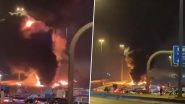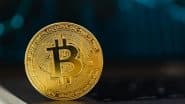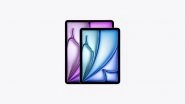Dubai, Dec 4 (AP) Iran's supreme leader called Wednesday for those detained in recent gasoline price protests to be treated with "Islamic mercy" even after authorities acknowledged government forces shot and killed demonstrators nationwide in unrest that reportedly killed over 200 people.
The comments by Ayatollah Ali Khamenei, who has final say over all state matters in the Islamic Republic, appear to signal how much the mid-November protests shook the pillars of power in the theocracy.
Amnesty International believes at least 208 people were killed in the protests and security force crackdown that followed. Iran disputes Amnesty's figures but has so far refused to release any nationwide casualty or arrest figures.
The demonstrations show the widespread economic discontent gripping Iran since May 2018, when President Donald Trump imposed crushing sanctions after unilaterally withdrawing the United States from the nuclear deal that Tehran struck with world powers.
That decision has seen Iran begin to break limits of the deal, as well as a series of attacks across the Mideast that America has blamed on Tehran.
The state-run IRNA news agency quoted Khamenei as responding to a report on the unrest from the country's Supreme National Security Council.
"The faster these cases are considered, the better and those who are suspected of being close to any group should be dealt with in a way that is closer to Islamic mercy," Khamenei said, according to IRNA.
Khamenei also said citizens killed in the protests "without playing any part in instigating them" should be considered martyrs and their families should receive government stipends. Those "killed in shootouts with security forces" also should have their backgrounds examined, he said.
Authorities should "console those families that have never had any criminal backgrounds," IRNA said, paraphrasing Khamenei.
Khamenei's comments soften earlier remarks he made immediately after the protests swept across 100 cities and towns.
"Setting a bank on fire is not an act done by the people. This is what thugs do," Khamenei said.
Amnesty's death toll of at least 208 makes it the bloodiest unrest in Iran since the time of the Islamic Revolution. The 2009 Green Movement protests that followed a disputed presidential election drew millions to the streets but saw far less killing.
The demonstrations began November 15 after the government raised minimum gasoline prices by 50 per cent to 15,000 Iranian rials per litre.
That's 12 cents a litre, or about 50 cents a gallon. After a monthly 60-litre quota, it costs 30,000 rials a litre. That's nearly 24 cents a litre or 90 cents a gallon. An average gallon of regular gas in the US costs USD 2.58 by comparison, according to AAA.
Cheap gasoline is practically considered a birthright in Iran, home to the world's fourth-largest crude oil reserves despite decades of economic woes. That disparity, especially given its oil wealth, fuelled the anger felt by demonstrators.
Iranians have seen their savings chewed away by the rial's collapse from 32,000 to USD 1 at the time of the 2015 nuclear accord to 127,000 to USD 1 today under the renewed US sanctions. The cost of daily staples also has risen, making the removal of any government subsidy making life affordable for Iran's people wildly unpopular.
The government of President Hassan Rouhani pushed for the gasoline-price hike, saying they'd use the money for a new support program for Iran's poor. However, after the unrest, Rouhani himself tried to describe himself as surprised by the timing of the implementation of the gasoline hike. (AP)
(The above story is verified and authored by Press Trust of India (PTI) staff. PTI, India’s premier news agency, employs more than 400 journalists and 500 stringers to cover almost every district and small town in India.. The views appearing in the above post do not reflect the opinions of LatestLY)













 Quickly
Quickly


